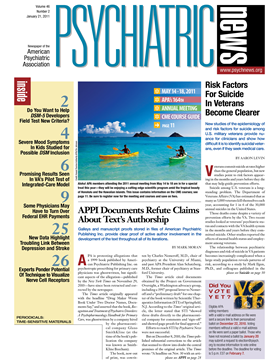Common sleep problems predicted a heightened risk of developing metabolic syndrome in a large community sample, according to a study by University of Pittsburgh researchers.
The study results, which were published in the December 2010 Sleep, show that subjects who experienced loud snoring, difficulty falling asleep, and unrefreshing sleep were significantly more likely to develop metabolic syndrome.
Metabolic syndrome is a cluster of conditions—including high blood pressure, elevated insulin levels, excess body fat, and low high-density lipoprotein (HDL) cholesterol levels—that together raise the risk of coronary artery disease, stroke, and type 2 diabetes.
To examine the link between sleep problems and metabolic syndrome, researchers recruited 812 subjects from the Heart Strategies Concentrating on Risk Evaluation (SCORE) program, an ongoing community-based study of adults aged 45 to 74 that is designed to examine the effects of race and gender on cardiovascular risk.
Baseline enrollment in Heart SCORE began on June 16, 2003, and ended on October 11, 2006. The subjects all lived in the Pittsburgh area.
The researchers assessed subjects for insomnia using the Insomnia Symptom Questionnaire and for symptoms of sleep-disordered breathing such as snoring using the Multivariable Apnea Prediction Questionnaire. They also assessed subjects for metabolic syndrome at baseline and at annual visits for the next three years.
In addition, researchers gathered information on demographic, psychosocial, and lifestyle characteristics.
Subjects with metabolic syndrome or diabetes at baseline were excluded from the study.
During the course of the three-year study, 14 percent (n=115) of subjects developed metabolic syndrome.
After analyzing the results, principal investigator Wendy Troxel, Ph.D., found that difficulty falling asleep, experiencing unrefreshing sleep, and loud snoring significantly predicted the development of metabolic syndrome (p<0.05). Troxel is an assistant professor of psychiatry and psychology at the University of Pittsburgh, where the study was based.
Subjects who experienced loud snoring had more than twice the risk of developing metabolic syndrome than those who didn't, the analysis showed, and this risk was increased by 80 percent in adults who reported having difficulty falling asleep and by 70 percent in those who reported that their sleep was unrefreshing.
Further analysis showed that unrefreshing sleep was only marginally significant when researchers adjusted for loud snoring, yet both loud snoring and difficulty remaining asleep remained significant independent predictors of metabolic syndrome.
Troxel surmised that snoring may lead to cardiovascular and metabolic risk problems by disrupting sleep, thereby leading to fatigue during the day and a more sedentary lifestyle, which could then lead to weight gain and in turn to cardiovascular problems.
“Another possibility is that the vibrations in the carotid artery associated with snoring may have direct negative consequences by damaging the inner wall of the artery and stimulating inflammatory processes, which can set the stage for artherosclerosis,” she told Psychiatric News.
In addition, she noted, people who have difficulty falling asleep may show heightened physiological and psychological responses to stress—reactions that have been linked to increased blood pressure and heart rate as well as increased production of stress hormones, which are in turn linked to cardiovascular and metabolic functioning.
“There is also solid experimental evidence to suggest that disrupted or shortened sleep can lead to hormonal changes, which have a direct impact on glucose metabolism and weight gain,” she said.
Troxel told Psychiatric News that the results indicate the need for “screening of routine sleep problems in routine clinical practice.”
Overall, maintaining a healthy weight and leading an active lifestyle are keys to healthy sleep and cardiovascular health, she said.
She recommended that physicians refer their patients with sleep-disordered breathing and/or insomnia to specialists for evaluation and subsequent treatment to head off the development of metabolic syndrome that may result from the sleep problems.
The National Institutes of Health and the Commonwealth of Pennsylvania Department of Health provided study funding.
